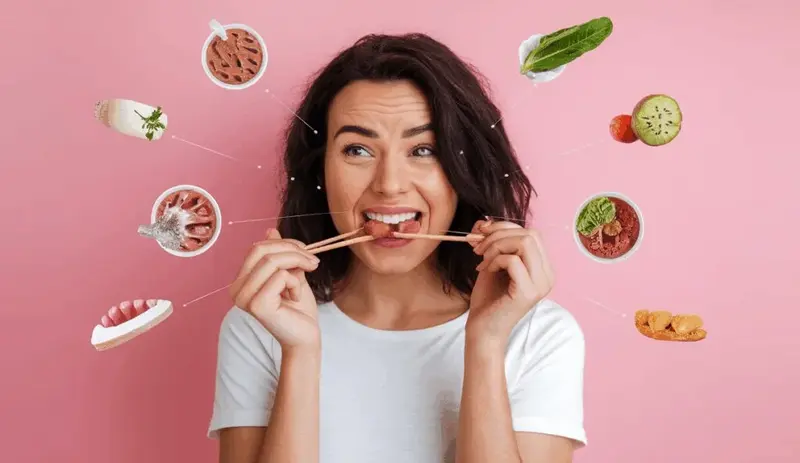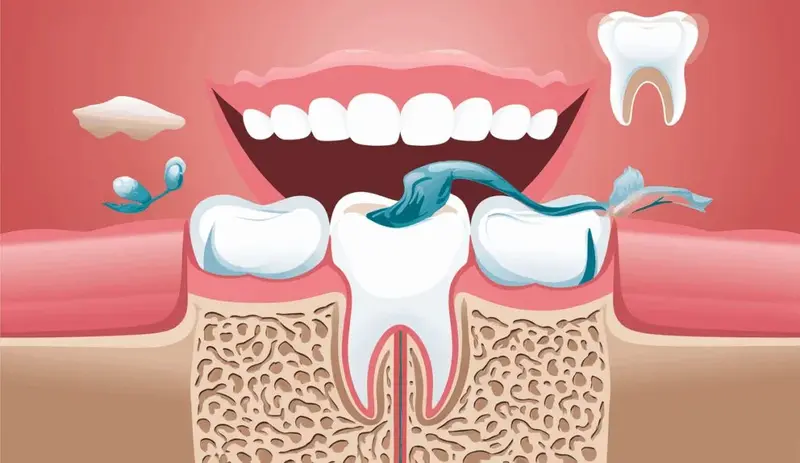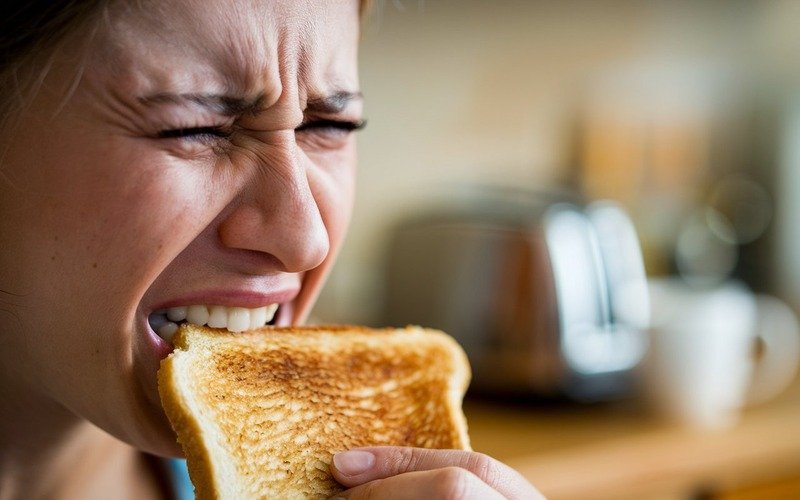
You’ve noticed your gums feel a bit swollen and tender after meals. Is it something you’re eating? Many people wonder about the connection between diet and oral health.
Our team at Lifeworks Dental sees patients with similar concerns every day. This guide will help you understand how food choices can impact your gum health and what you can do to protect your smile.
Understanding Gum Inflammation: What You Need to Know
Gum inflammation – often called gingivitis – is the first sign that something is off in the mouth. It’s like a tiny fight that happens every day right where the teeth meet the gums.
Bacteria set up camp, the body sends its defenses, and the gums get red and sore. Some people think it’s just a small annoyance, but it can actually tell you a lot about the health of the whole body.
What Exactly Is Gum Inflammation?
Gingivitis is an early?stage swelling of the gum caused by germs. When a sticky film of bits?and?pieces – the plaque – sticks to teeth and slides down to the gum line, the germs you find there, like Porphyromonas gingivalis, start to grow fast.
Their waste makes the gum tissue irritated. The body then sends white blood cells and chemicals to the spot. You can see it as red tissue, puffiness, or bleeding when the gum is touched.
Those signs look harmless, but if you let them stay they can eat away at the tissue that holds teeth in place and even touch the bone beneath.
Foods That Can Trigger Gum Inflammation
The biggest food losers are sweet snacks, plain carbs and sticky processed foods. Think of soda, candy bars, white? flour pastries, and gummy bears. Their sugar is quick food for the plaque? forming germs, making the film thicker faster.
When the germs chew up this sugar they spit out acid. That acid irritates the gums even more. A lot of people only link sugar to weight problems, but it also feeds the tiny invaders that cause gum trouble.
So sipping a regular cola or munching on a donut is basically giving fuel to the enemies on your teeth, especially here in Houston, TX where fast food is everywhere.
Surprising Dietary Triggers to Watch Out For
Besides obvious sugar, acidic eats can wear down the hard shell of teeth a little. Citrus fruits, tomatoes, and sour drinks such as kombucha or wine can make tiny holes in enamel.
Those holes become extra places for germs to hide. Some folks also notice their gums feel weird after they eat dairy products or foods with wheat gluten. The exact reason isn’t clear yet.
If you see a pattern, you might want to test it out and maybe ask a dentist at Lifeworks Dental if an intolerance is adding to the problem.
Foods That Help Fight Gum Inflammation
Luckily some foods work like little helpers for your gums. Dark leafy greens – spinach, kale, collard greens – carry vitamins and antioxidants that help repair tissue.
Vitamin C, in particular, supports the building blocks of gum fibers. Fatty fish such as salmon or sardines bring omega?3 fats that calm down inflammation.
Crunchy raw foods – apples, carrots, celery – act like “nature’s toothbrushes.” They scrape away bits of plaque while you chew and give nutrients at the same time.
Also Check Out: Why Do I Have Tooth Pain When Biting?
When to See a Dental Professional
If your gums stay red, puffy, or bleed for more than about two weeks even after you brush and floss well, it’s time to get a professional check?up.
An unresolved case can slip into periodontitis, a deeper condition where the bone under the teeth starts to disappear and teeth may loosen. A quick visit to a local dentist near you can stop the damage before it becomes permanent.
Also, if you notice blood when you brush unexpectedly, or the pain appears out of nowhere, ask for help right away. Early care saves a lot of trouble later.
Conclusion
What happens in your mouth often mirrors what’s happening inside your whole body. Eating a lot of sugar and acidic foods can push your gums toward inflammation, while leafy veg, fish and crunchy fruits push back.
Good brushing, flossing and watching your diet are key, but don’t wait too long if problems stick around. See a dentist sooner rather than later and keep your smile – and your health – on solid ground.
Your diet plays a crucial role in gum health. By making smart food choices and maintaining good oral hygiene, you can protect your smile and overall health.



![What Causes Tooth Decay Under Crowns [2025 Guide]](https://lifeworksdental.com/wp-content/uploads/2025/03/What-Causes-Tooth-Decay-Under-Crowns-2025-Guide.jpeg)

